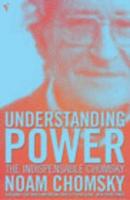Subject

photo credits: Wikimedia Commons
In social science and politics, power is the social production of an effect that determines the capacities, actions, beliefs, or conduct of actors. Power does not exclusively refer to the threat or use of force (coercion) by one actor against another, but may also be exerted through diffuse means (such as institutions). Power may also take structural forms, as it orders actors in relation to one another (such as distinguishing between a master and an enslaved person, a householder and their relatives, an employer and their employees, a parent and a child, a political representative and their voters, etc.), and discursive forms, as categories and language may lend legitimacy to some behaviors and groups over others.The term authority is often used for power that is perceived as legitimate or socially approved by the social structure. Power can be seen as evil or unjust; however, power can also be seen as good and as something inherited or given for exercising humanistic objectives that will help, move, and empower others as well. Scholars have distinguished the differences between soft power and hard power. Source: Wikipedia (en)
Works about power 16
Milk Blood Heat
-
Лестница в небо (книга)
Agency - Wer oder was hat die Macht?
Herrschaftskritik
-
Murder of an African King: Yaa-Naa Yakubu II
Understanding Power: The Indispensable Chomsky
-
The Subject and Power
-
The ruling class
Dune
-
Dům o 1000 patrech

Ozymandias
Les Liaisons dangereuses
Julie, or the New Heloise
-
Plural Maghreb
Theorien der Macht zur Einführung
Spuren der Macht
Subject - wd:Q25107








